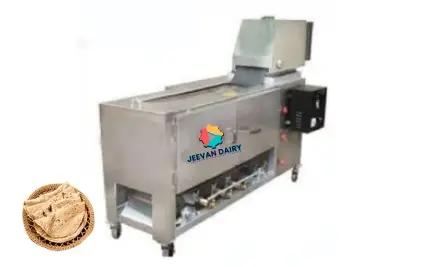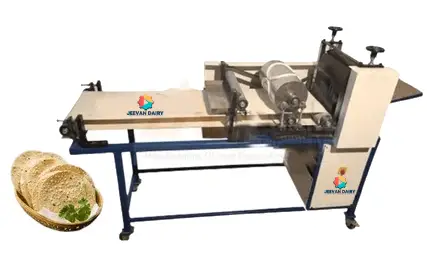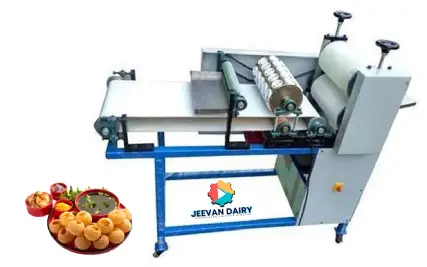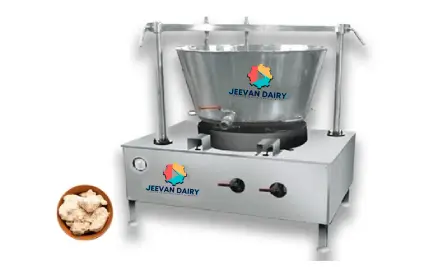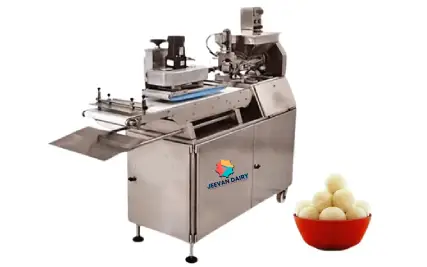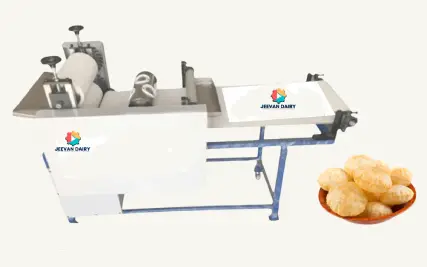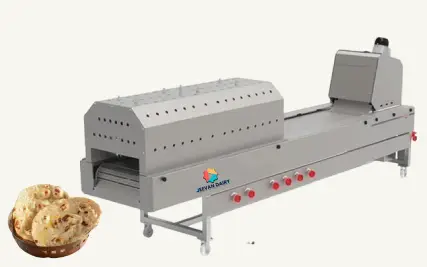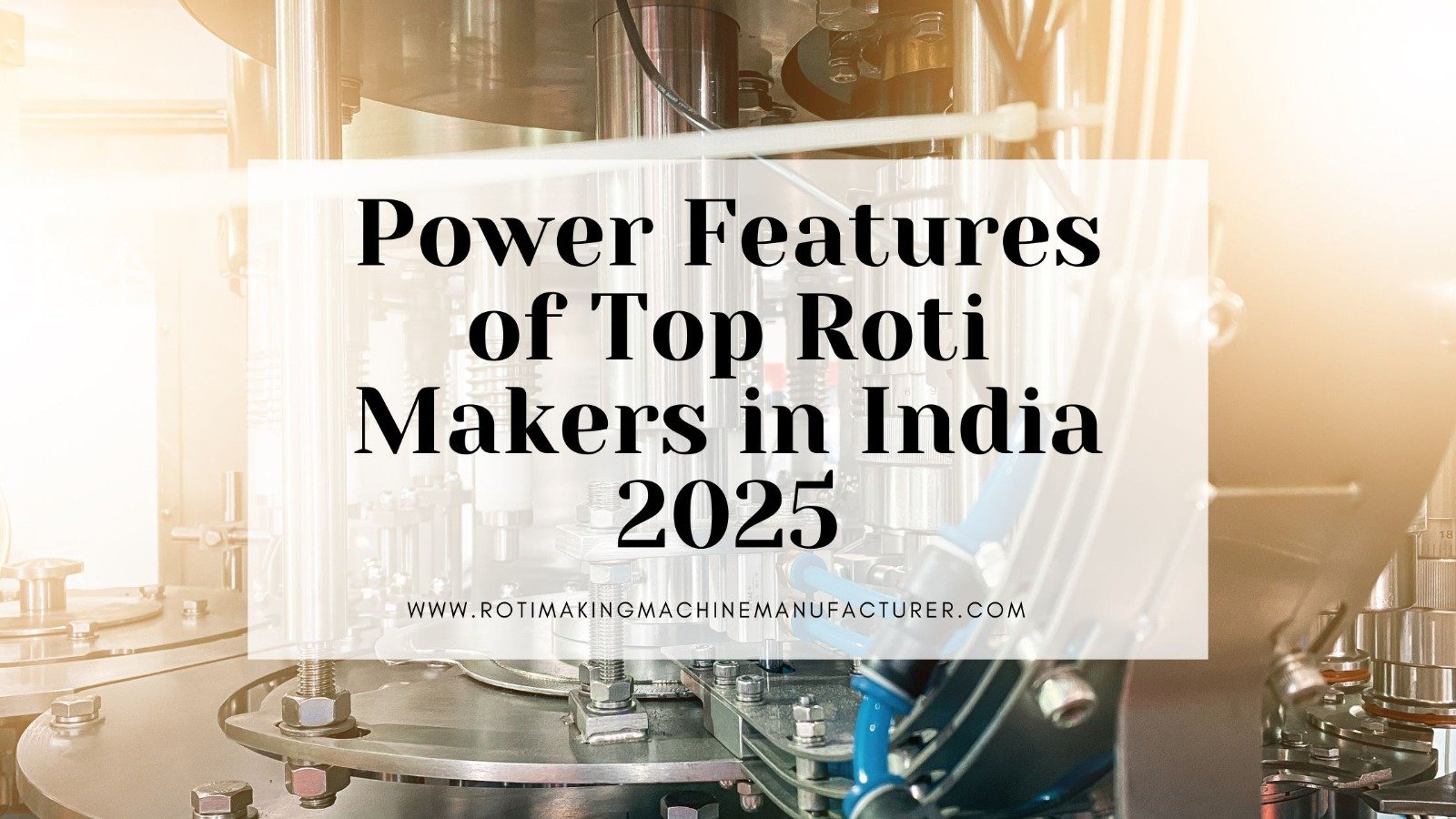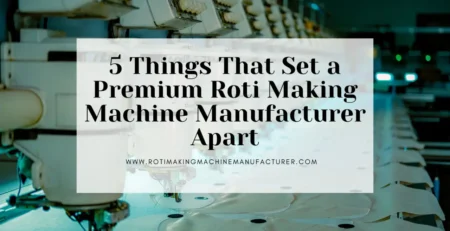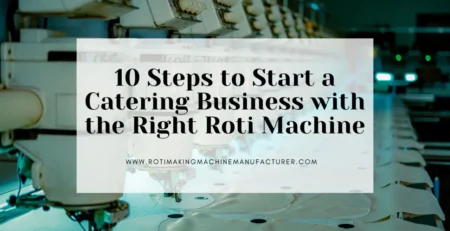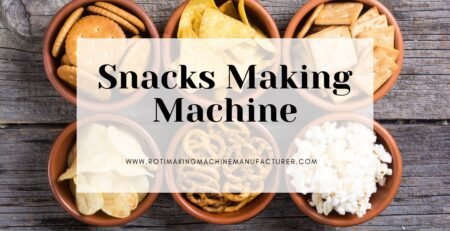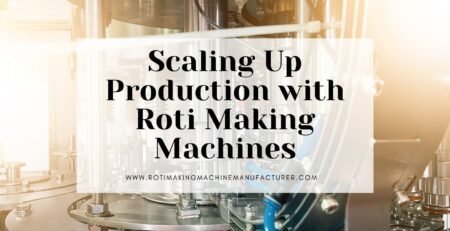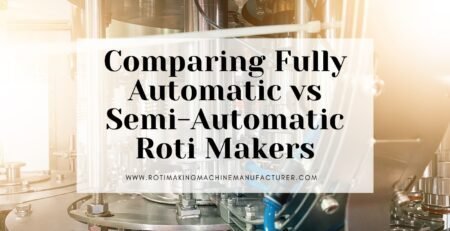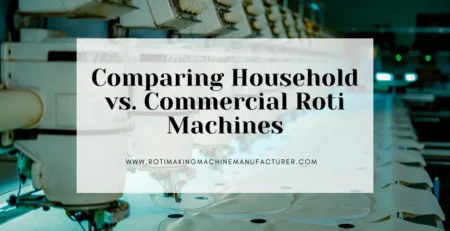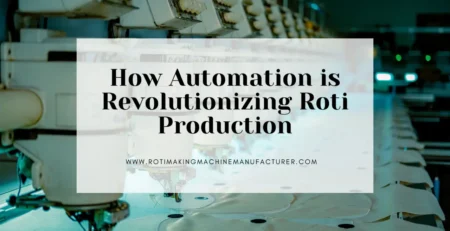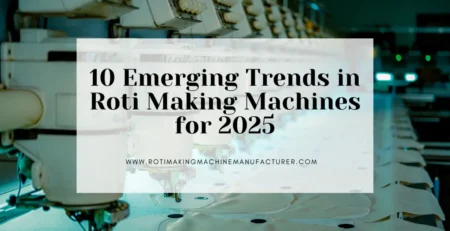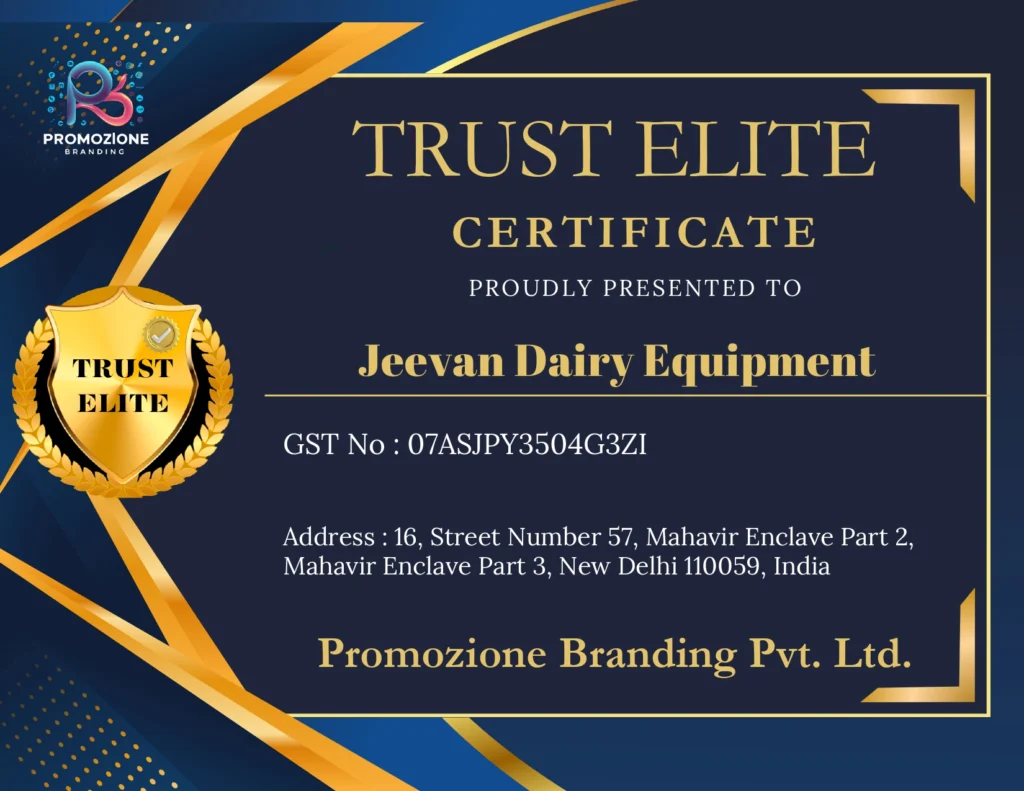Power Features of Top Roti Makers in India 2025
Introduction
The introduction of a sophisticated roti-making machine manufacturer in 2025 brought about a radical change in the Indian kitchen appliance market. By fusing speed, consistency, and hygiene, these devices have revolutionized cooking in both homes and businesses. Modern machines streamline the process from preparing the dough to producing perfectly cooked rotis, so it’s no longer a laborious, time-consuming task.
One of the reputable companies spearheading this change is Jeevan Dairy Industry, a well-known producer of roti-making equipment in India. Jeevan Dairy Industry, which offers solutions for both small kitchens and large commercial operations, is renowned for its inventiveness, robustness, and customer service.
The powerful features of the best roti makers in India in 2025 are examined in this article, along with a comparison of fully and semi-automatic machines, their technological developments, energy efficiency, and effects on contemporary kitchens.
Fully Automatic Roti Makers: Redefining Convenience
1.1 AI-Powered Technology
By 2025, fully automated roti makers will have smart controls and AI-assisted sensors. Real-time monitoring of dough consistency, heat distribution, and cooking time is possible with devices such as the Rotimatic NEXT. This guarantees consistently cooked rotis. AI automation is perfect for commercial kitchens because it lowers human error, minimizes waste, and boosts operational efficiency.
1.2 Hands-Free Operation
The hands-free operation of fully automated machines is their distinguishing characteristic. The entire process is automated, from handling dough balls to cooking them. These days, kitchens can make 800–1,000 rotis an hour with little oversight. Large eateries, canteens, and catering services especially benefit from this speed.
1.3 Precision Customization
Users can alter the roti’s thickness, softness, browning, and even oil content with modern machines. In commercial settings, where consistent quality is essential for customer satisfaction, such precise control is invaluable.
1.4 Safety Features
Heat-resistant handles, automatic shut-off, and anti-overheating mechanisms are features of fully automatic roti makers. The protection of operators during continuous, high-volume production is guaranteed by these safety features.
1.5 Hygiene and Maintenance
By minimizing human interaction, automated equipment ensures hygienic food preparation. Detachable non-stick plates and easily cleaned parts are now common in many high-end models, guaranteeing durability and reliable operation.
Semi-Automatic Roti Makers: Combining Tradition and Automation
2.1 Partial Automation
While semi-automated roti makers require manual dough feeding, they automate pressing and cooking. This gives users the advantage of mechanical precision while maintaining traditional control over dough quality.
2.2 Compact Design
These devices are perfect for tiffin services and smaller kitchens. Without sacrificing production efficiency, their space-saving design makes installation simple in small kitchens.
2.3 Energy Efficiency
For small-scale operations, semi-automatic machines are more economical and energy-efficient because they use less electricity than fully automatic models.
2.4 Cost-Effectiveness
Semi-automatic roti makers are perfect for home-based businesses, small restaurants, and startups because they require less capital. They offer premium rotis while striking a balance between affordability and automation.
Key Features to Look for in 2025 Roti Makers
Understanding the characteristics that define performance, durability, and efficiency is crucial when choosing a roti-making machine, whether for a home kitchen, small business, or commercial setup. In order to guarantee consistent output, hygienic conditions, and energy efficiency, contemporary roti makers in 2025 integrate cutting-edge technology with functional design. Here is a thorough examination of the main attributes you ought to take into account:
3.1. Build Quality and Durability
The construction and materials of a roti maker are critical for long-term performance:
- Stainless Steel Body: The exterior and internal parts of the best roti makers are made of stainless steel, which is resistant to rust, corrosion, and wear over time.
- Sturdy Components: Even under demanding daily use, smooth operation is guaranteed by premium motors, gears, and pressing mechanisms.
- Longevity: Businesses benefit greatly from durable machines because they require fewer repairs or replacements over time.
Investing in a well-built machine ensures consistent performance and minimizes downtime in both commercial and home settings.
3.2. Non-Stick and Easy-to-Clean Surfaces
Cleaning and maintenance are vital for hygiene and machine longevity:
- Non-stick plates lower the chance of rotis tearing or burning by preventing them from sticking.
- Detachable Parts: Cleaning is completed quickly and thoroughly thanks to detachable plates and trays.
- Hygienic Operation: Cleanliness and adherence to food safety regulations are ensured by less manual contact with food.
Machines that are easy to clean save time, prevent bacterial buildup, and enhance the overall user experience.
3.3. Energy Efficiency
With rising electricity costs and a focus on sustainability, energy efficiency is an important consideration:
- Optimized Heating Systems: To prevent needless power consumption, modern machines use sensors to maintain precise temperature levels.
- Fast Cooking Cycles: By preparing rotis quickly, the machine uses less energy.
- Eco-Friendly Design: By combining mechanical efficiency with manual input, semi-automatic machines are especially energy-conscious.
Choosing energy-efficient machines helps reduce operational costs while supporting environmentally responsible practices.
3.4. Smart Controls and Monitoring
Advanced 2025 roti makers incorporate digital and automated controls:
- Customizable Settings: For individualized outcomes, users can change the oil content, browning, softness, and thickness.
- Digital Interfaces: LED screens and touchscreens make operations easier and give feedback on cooking cycles.
- App Connectivity: Some completely automated appliances can now be monitored and operated through smartphone apps, which is convenient for hectic kitchens.
Smart controls enhance precision, reduce errors, and improve consistency in both home and commercial environments.
3.5. Safety Features
Safety is a crucial aspect, especially in high-volume kitchens:
- Heat-Resistant Handles: Prevent burns to operators when using them continuously.
- Automatic Shut-Off: Prevents accidents or overheating if the machine is left unattended.
- Shockproof Design: Even in locations with erratic power supplies, electrical safety guarantees safe operation.
Safety features minimize accidents, protect employees, and ensure smooth operations in both domestic and commercial settings.
3.6. Production Capacity and Speed
For commercial kitchens, production speed and capacity are key considerations:
- High Throughput: Semi-automatic machines provide a moderate output for smaller operations, while fully automatic machines can produce hundreds of rotis per hour.
- Consistent Quality: Each roti is the same size, thickness, and softness, so speed does not degrade quality.
- Scalability: Companies can select equipment with capacities that meet present demand and upgrade as production demands increase.
Evaluating production capacity ensures that your machine aligns with your business scale and customer demand.
3.7. Maintenance and After-Sales Support
Finally, a machine is only as good as the support behind it:
- Maintenance Ease: Troubleshooting is made easier by machines with easily accessible parts and understandable manuals.
- Availability of Spare Parts: Minimal downtime is ensured by readily available spare parts.
- Manufacturer Support: Installation, training, and continuing technical support are offered by reputable roti-making machine manufacturers such as Jeevan Dairy Industry.
Strong after-sales support guarantees that your investment remains productive and reliable over the years.
Environmental and Social Benefits of Roti Making Machines
Whether completely or partially automated, modern roti-making machines offer more benefits than just labor and time savings. They offer substantial social and environmental benefits, assisting companies in becoming more efficient, socially conscious, and sustainable. Here is a thorough examination of how these devices help society and the environment:
4.1. Reduced Food Waste
The ability of automated roti makers to reliably produce uniform rotis is one of their main environmental advantages.
- Conventional manual techniques frequently lead to dough waste, rotis that are overcooked or undercooked, and uneven sizes.
- Precision in Portioning: To guarantee that no extra dough is wasted, machines slice dough into precisely the right size balls.
- Consistent Cooking: By preventing burnt or undercooked rotis, even heat distribution lowers the number of batches that are thrown out.
Business Impact: This results in less waste of raw materials, reduced expenses, and more environmentally friendly operations for commercial kitchens.
4.2. Energy Efficiency
Modern roti makers are designed to be energy-conscious:
- Optimized Heating: Sensors are used by fully automated machines to maintain exact temperatures while preventing needless energy use.
- Fast Cooking Cycles: Making rotis quickly cuts down on the amount of time that machines are running, which saves electricity.
- Reduced Carbon Footprint: Because semi-automatic machines operate partially by hand, they use even less energy, which makes them perfect for small kitchens or places with limited power supplies.
By adopting energy-efficient machines, businesses contribute to sustainable practices while lowering operational costs.
4.3. Hygienic Food Preparation
Hygiene is a critical social benefit of automated roti-making machines:
- Minimal Human Contact: The majority of the preparation is done by machines, which lowers the possibility of contamination.
- Simple Cleaning: A hygienic cooking environment is maintained thanks to non-stick surfaces and detachable parts that enable thorough cleaning.
- Observance of Food Safety Standards: Automated hygiene guarantees that companies adhere to contemporary food safety laws, safeguarding the health of customers.
This leads to safer food for customers and builds trust in your brand.
4.4. Labor Welfare and Reduced Physical Strain
Traditional roti preparation requires significant physical effort — kneading dough, rolling, and cooking for long hours. Roti-making machines improve working conditions:
- Decreased Manual Effort: By automating repetitive tasks, kitchen workers can avoid strain injuries and fatigue.
- Increased Productivity: Rather than working by hand, employees can concentrate on quality assurance, plating, or other culinary duties.
- Employee Satisfaction: Both large kitchens and small businesses gain from safer, simpler working conditions since they boost morale and lower turnover.
By automating labor-intensive tasks, these machines promote social welfare in the workplace.
4.5. Empowering Small Businesses
Automated roti makers empower small-scale entrepreneurs to grow their operations sustainably:
- Scalability: Companies are able to accommodate increased demand without adding more staff.
- Affordability: Startups can access effective technology without having to make a significant capital investment thanks to semi-automatic machines.
- Brand Growth: Reputation and customer satisfaction are improved by consistent quality and hygienic preparation.
Essentially, contemporary roti makers help small businesses compete with larger establishments while also assisting them in becoming environmentally and socially conscious.
4.6. Promoting Sustainable Practices in Commercial Kitchens
Commercial kitchens using roti-making machines contribute to sustainability through:
- Effective Resource Use: Precise portion control minimizes waste of flour and water.
- Energy-Saving Operations: Each roti produced uses less electricity thanks to machine optimization.
- Long-Term Durability: Reducing the need for replacements over time minimizes industrial waste.
Businesses can increase operational efficiency without sacrificing environmental responsibility by implementing roti-making equipment from reliable manufacturers like Jeevan Dairy Industry.
Jeevan Dairy Industry: Leading Roti Making Machine Manufacturer in India
One of India’s leading producers of roti-making machines, Jeevan Dairy Industry has established a stellar reputation for offering cutting-edge solutions to homes, small food businesses, and expansive commercial kitchens. The company’s dedication to quality, technology, and customer satisfaction has set it apart in a rapidly growing market. The following explains in detail why Jeevan Dairy Industry is the go-to option for contemporary roti-making solutions in 2025:
5.1. Commitment to Quality
Jeevan Dairy Industry emphasizes high-quality engineering in every machine it manufactures. Each roti-making machine undergoes rigorous quality checks, ensuring:
- Durability: Sturdy design with premium parts and food-grade stainless steel for enduring performance.
- Consistency: Machines are designed to produce perfectly uniform rotis every time, maintaining size, thickness, and softness.
- Hygiene: Detachable plates, non-stick surfaces, and easily cleaned designs guarantee food safety, which is an essential component of contemporary kitchens.
By prioritizing quality at every stage — from design to production — Jeevan Dairy Industry ensures that its machines deliver consistent performance even under heavy daily usage.
5.2. Advanced Technology and Innovation
As a leading roti-making machine manufacturer, Jeevan Dairy Industry continually invests in research and development to integrate cutting-edge technology into its products. Features include:
- Automation: Completely automated devices that cook, roll, and knead dough with little assistance from humans.
- Smart Controls: Texture, cooking time, and thickness can all be precisely adjusted using digital interfaces.
- Energy Efficiency: Without sacrificing output, machines are built to maximize power consumption.
- Safety Mechanisms: Auto-shutoff, overload protection, and heat-resistant handles guarantee safe operation.
Through continuous innovation, Jeevan Dairy Industry ensures that its customers benefit from modern technology while still maintaining the authentic quality of traditional rotis.
5.3. Wide Range of Products for Diverse Needs
Understanding that different businesses have different requirements, Jeevan Dairy Industry offers a comprehensive range of roti-making machines:
- Home-Use Models: Small, partially automated devices for homes seeking convenience without compromising on flavor.
- Affordable semi-automatic equipment for cloud kitchens, small eateries, and tiffin services are examples of small business solutions.
- Commercial and Industrial Models: Fully automated, high-capacity machines that can make hundreds of rotis an hour for use in cafeterias, hotels, and catering services.
This wide product range ensures that customers, whether starting small or running large-scale operations, can find a machine that perfectly matches their needs.
5.4. Customer-Centric Service and Support
Jeevan Dairy Industry goes beyond just manufacturing machines; it focuses on delivering end-to-end solutions:
- Installation Support: Expert setup guarantees that machines run as efficiently as possible right away.
- After-Sales Support: Businesses can reduce downtime by providing prompt maintenance and technical assistance.
- Availability of Spare Parts: Years of machine operation are ensured by readily available spare parts.
- Customized Solutions: Equipment can be made to meet particular needs in terms of energy, kitchen space, or production volumes.
This customer-first approach has helped Jeevan Dairy Industry build long-lasting relationships with businesses across India.
5.5. Proven Track Record and Market Reputation
Jeevan Dairy Industry has successfully provided hundreds of roti-making machines to customers across the country over the years. Reliability, creativity, and consistent outcomes are the foundations of its reputation. Many restaurants, cloud kitchens, and commercial kitchens depend on Jeevan Dairy Industry equipment to effectively meet their daily roti production goals.
Clients consistently report:
- Improved productivity
- Reduced labor costs
- Consistently high-quality rotis
- Minimal maintenance issues
Jeevan Dairy Industry is the go-to option for companies wishing to expand and modernize their operations because of its ability to combine innovation, dependability, and customer service to maintain its position as one of India’s top manufacturers of roti-making machines.
Market Trends in 2025
- Automation Adoption: More homes and businesses are implementing automated roti makers as a result of the growing demand for convenience.
- Smart Integration: Modern machines come equipped with smart sensors, remote monitoring, and app connectivity.
- Sustainability Focus: New models prioritize long-lasting materials and energy efficiency.
- Growing Commercial Use: To keep up with demand, hotels, cloud kitchens, and catering services are depending more and more on large-capacity equipment.
Conclusion
Innovation, speed, efficiency, and hygiene are all combined by the leading roti manufacturers in India in 2025. While semi-automatic models strike a balance between affordability, flexibility, and conventional control, fully automatic machines offer hands-free operation, high output, and precise customization.
Your company’s size, production requirements, and financial constraints all influence the machine you choose. While fully automatic machines are ideal for large-scale kitchens, hotels, and industrial applications, semi-automatic machines are best suited for startups or small-scale operations.
Jeevan Dairy Industry is a reputable manufacturer of roti-making machines that has provided businesses all over India with dependable, creative, and effective roti-making solutions. Businesses can meet the increasing demand for freshly cooked rotis while saving time, lowering labor costs, ensuring consistent quality, and improving hygiene by investing in a high-quality machine.
Automation is the future of modern kitchens with the technology of 2025, and Jeevan Dairy Industry makes sure your company is prepared for that future.

